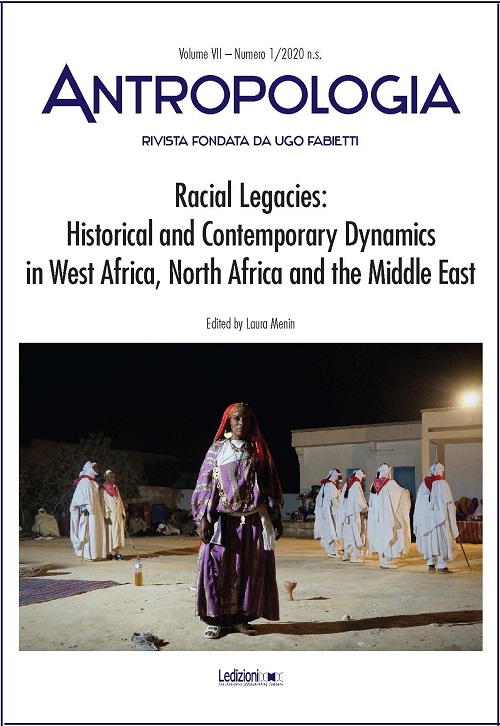Arba’īn and Bakhshū’s Lament: African Slavery in the Persian Gulf and the Violence of Cultural Form
DOI:
https://doi.org/10.14672/ada20201630189-214Parole chiave:
Blackness, Slavery, Experimental ethnography, Muharram, Persian GulfAbstract
Arba’īn names the Shi’a elegiac ritual commemorating the fortieth day of ‘Āshūrā – the 7th century murder of Husayn at the Battle of Karbala. In South Iranian provinces like Būshihr Arba’īn expresses a distinctly black character marked by animation and drumming virtuosity. Iranian filmmaker Nāsir Taqvāī’s experimental ethnographic documentary Arba’īn (1970) chronicles the regional peculiarities of this ritual, reflecting in both its form and content fragile testament to a haphazardly recorded history of African slavery absorbed into oblivion. Drawing upon historiographical, musicological, ethnographic sources and black studies, this article takes Taqvā’ī’s filmic mediation as an occasion to demonstrate the way so-called syncretized forms reveal historical information about slavery in nontransparent ways.##submission.downloads##
Pubblicato
2020-05-08
Fascicolo
Sezione
Articoli
Licenza
- Gli autori mantengono i diritti sulla loro opera e cedono alla rivista il diritto di prima pubblicazione dell'opera, licenziata sotto una Licenza Creative Commons - Attribuzione che permette ad altri di condividere l'opera indicando la paternità intellettuale e la prima pubblicazione su questa rivista.
- Gli autori possono aderire ad altri accordi di licenza non esclusiva per la distribuzione della versione dell'opera pubblicata (es. depositarla in un archivio istituzionale o pubblicarla in una monografia), a patto di indicare che la prima pubblicazione è avvenuta su questa rivista.




